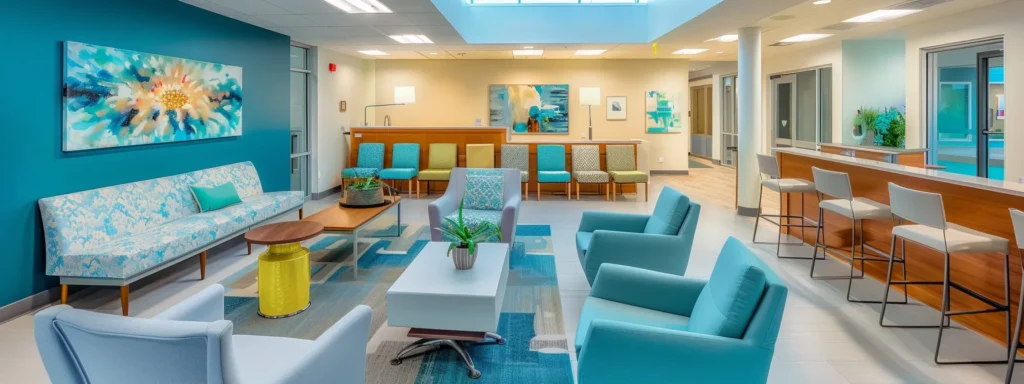
Outpatient alcohol treatment gives people a way to work on their recovery without stepping away from their daily lives. It’s a flexible, down-to-earth option that lets you attend therapy sessions, build coping skills, and get professional support, all while staying connected to your family, job, or studies.
This article will take a straightforward look at how outpatient rehab works, why it matters, and how it helps people stay on track, using real data, honest insight, and a focus on the human side of recovery.
In Woburn, outpatient alcohol rehab has become an important option for those seeking support without the need for full-time residential care. This article takes a real-world look at how outpatient rehab works, why it matters, and how it supports lasting recovery, backed by reliable statistics and a human-centered perspective.
Why Outpatient Care Matters in Woburn
Woburn residents often juggle work, school, or family responsibilities, and inserting full‑time rehab isn’t always possible. Outpatient programs fit into this juggling act by offering scheduled counseling, group therapy, and check‑ins with medical professionals, with evenings and weekends left free for life outside treatment.
Flexibility & Community Connection
Being able to sleep in your bed, see your loved ones every day, and walk your kids to school, all while receiving professional support, makes outpatient care a lifeline for many Woburn residents.
Cost & Accessibility
Outpatient treatment is generally more affordable than inpatient care. In the U.S, a 30‑day outpatient program runs between $5,000 and $10,000, compared to $6,000–$20,000 for inpatient care. This price difference reduces financial barriers, especially important in communities like Woburn.
Finding Healing Through Therapy
For a lot of people, the first real turning point in recovery comes with a quiet, honest moment: admitting something isn’t working and that it’s time for change. That’s where therapy often begins—and why it can be such a powerful part of outpatient alcohol treatment.
Therapy isn’t about being judged or “fixed.” It’s about having a space where you can finally say what’s going on—what’s behind the drinking, what you’re carrying, what’s been hard to face. Outpatient treatment often starts with one-on-one counseling for exactly that reason. It gives you the chance to slow down, talk openly, and begin untangling the deeper reasons behind it all.
Medication-Assisted Treatment (MAT)
Sometimes, talk therapy alone just isn’t enough, and that’s completely normal. Recovery isn’t one-size-fits-all. For many people, adding a little extra support through Medication-Assisted Treatment, or MAT, can make things feel more manageable.
Medications like naltrexone or acamprosate are commonly used to help dial down cravings or ease some of the withdrawal symptoms. They’re not a magic fix, and they won’t do all the heavy lifting, but when combined with therapy, they can help tip the scales in your favor.
Research indicates that MAT can enhance treatment success by approximately 20%, and it may even increase the likelihood of long-term recovery by up to 50%. For some people, that extra bit of support is exactly what makes it possible to keep going, especially on the hard days.
At the end of the day, MAT is just one more tool in the toolbox, and if it helps you feel more in control of your recovery, that’s what matters most.
Aftercare & Relapse Prevention
Aftercare doesn’t look the same for everyone, and that’s okay. For some, it might mean sticking with weekly therapy sessions to keep working through things. For others, it could be joining a support group, checking in with a counselor every so often, or spending a little more time in a sober-living environment to stay on steady ground.
There’s no “right” way to do it. The whole point of aftercare is to give you ongoing support that fits into your life and helps you stay connected to your recovery. Whether it’s through community, structure, or just knowing you have someone to talk to, aftercare helps you keep moving forward, one day at a time.
And the truth is, it works. Around 75% of people who finish outpatient treatment go on to do some kind of aftercare. And research shows that staying involved in follow-up care can lower the chances of relapse by up to 50%. That’s a pretty powerful reminder that healing doesn’t happen in isolation; it happens in community, with support, and over time.
Take the Next Step
Places like Forrest Behavioral Health are there to help, not to judge, not to pressure, just to listen and guide you through what comes next, at your pace. You can ask about an intake assessment, and they’ll walk you through everything with care, patience, and zero pressure.
It’s also helpful to give your insurance provider a quick call so you can understand what’s covered—things like copays or deductibles, just so there are no surprises. And while you’re planning, don’t forget to ask about support after treatment, too. Woburn has a number of options, like AA meetings, SMART Recovery groups, alumni programs, and other local resources to help you stay connected.
Key Takeaways
Outpatient alcohol treatment in Woburn is built to fit into everyday life. It offers support without requiring you to step away from your job, family, or responsibilities. With counseling, group therapy, and caring professionals, it creates a steady path to healing that works with your routine, not against it.
Medication-Assisted Treatment (MAT) can offer some extra support for people who need a bit more help along the way. It helps take the edge off cravings and makes withdrawal symptoms easier to handle, which can make the recovery journey feel a little less heavy. For many, MAT makes it easier to keep moving forward, and it can boost the chances of staying sober for the long haul.
Recovery doesn’t end when the program does. That’s where aftercare comes in. Whether it’s joining a support group, sticking with therapy, or spending time in a sober-living space, these ongoing steps help you stay connected and steady. People who continue with aftercare are far less likely to relapse.
Most importantly, you don’t have to go through this alone. Places like Forrest Behavioral Health are here to meet you with compassion, not pressure, to walk alongside you, at your pace, every step of the way.

